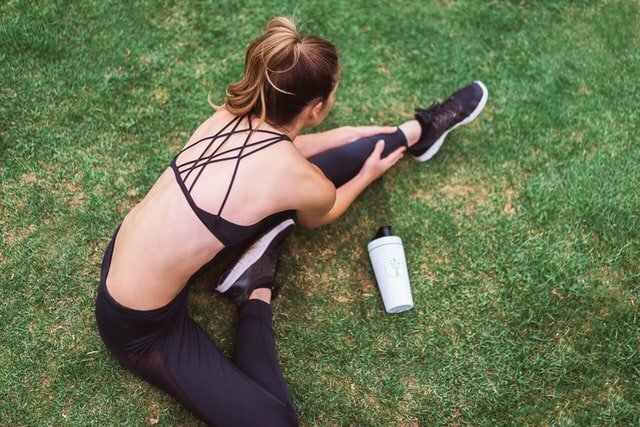How to beat anxiety
Whether it’s fear of what might be around the corner or worry that you’ll make some terrible mistake, the government’s 2013 ONS Wellbeing survey reported that one in five of us experience anxiety on a daily basis while research by Nuffield Health suggests that 23 million UK adults (44 per cent) experience anxiety symptoms at least once a week.
Women seem to suffer disproportionately. A recent survey of more than 1,000 UK women found that two-thirds feel anxious at least once a week and that a third of these have no idea how to cope with these feelings. And the numbers are rising.
There is good news, however. There are simple, everyday actions you can take that will help alleviate the symptoms of anxiety and make it less likely to catch you out the next time. So how do you move from panic attacks to peace? Instead of reaching for a glass of wine, try these:
1. BE MINDFUL: This exercise is one that Ruby Wax suggests to readers in her book: if your emotions or thoughts are getting too hot, just switch your attention elsewhere to take down the heat. Try not to pick something that will harm you – for example, drugs, overindulgence in food or shopping.
- Start counting from one to 100 backwards
- Watch an engrossing film
- Read something easy
- Listen to some loud music
2. GET DOWN TO THE GROUND: If you’re prone to anxiety, it’s important to introduce regular ‘grounding’ activities into your life that calm you, such as yoga, Pilates, tai chi or a chat with friends. ‘These things can lower raised adrenaline levels and help to alleviate anxiety,’ says psychologist Dr Bijal Chheda-Varma.
3. START MOVING: Exercise is the original natural remedy for anxiety. It helps bring levels of the stress hormones cortisol and adrenaline back to normal. It also raises feel-good endorphin levels and increases body temperature, which may have a calming effect. ‘Exercise can be an exceptionally powerful tool to help manage stress and anxiety disorders,’ says Leanne Spencer, a personal trainer who has helped people suffering from anxiety and other mental health issues, after suffering from anxiety herself. She has found that pad work (boxing) is particularly helpful for helping clients to de-stress. However Dr Chheda-Varma advises against excessive exercise as ‘This can raise adrenaline levels even more.’
4. GO UNDER: Although it’s not approved by the National Institute for Clinical Excellence (NICE), there is anecdotal evidence that hypnotherapy may be beneficial for anxiety, according to Anxiety UK. Juls Abernethy, hypnotherapist and behaviour coach at The Body Retreat says: ‘Hypnotherapy combines talking therapy with relaxation, often combining psychotherapy with work that’s done in a trance state. Trance is a wonderful relaxing state that also helps to reduce stress levels, increase self-esteem and feelings of personal control.’ Writer Jenny Cooper saw a clinical hypnotherapist for her anxiety. ‘The hypnosis was fine – I just felt deeply relaxed. I could still hear everything that was going on as I was fully conscious but ultra-laid back!’ She recorded the hypnosis onto a CD and listened to it a couple of times a week, turning it into her ‘down time’ for relaxation.
For further information about tackling anxiety, visit anxietyuk.org.uk and simplyhealth.co.uk
MARTHA ROBERTS is an award-winning UK health writer and mental health blogger at mentalhealthwise.com
This article was originally published by psychologies.co.uk Read the original article here.



